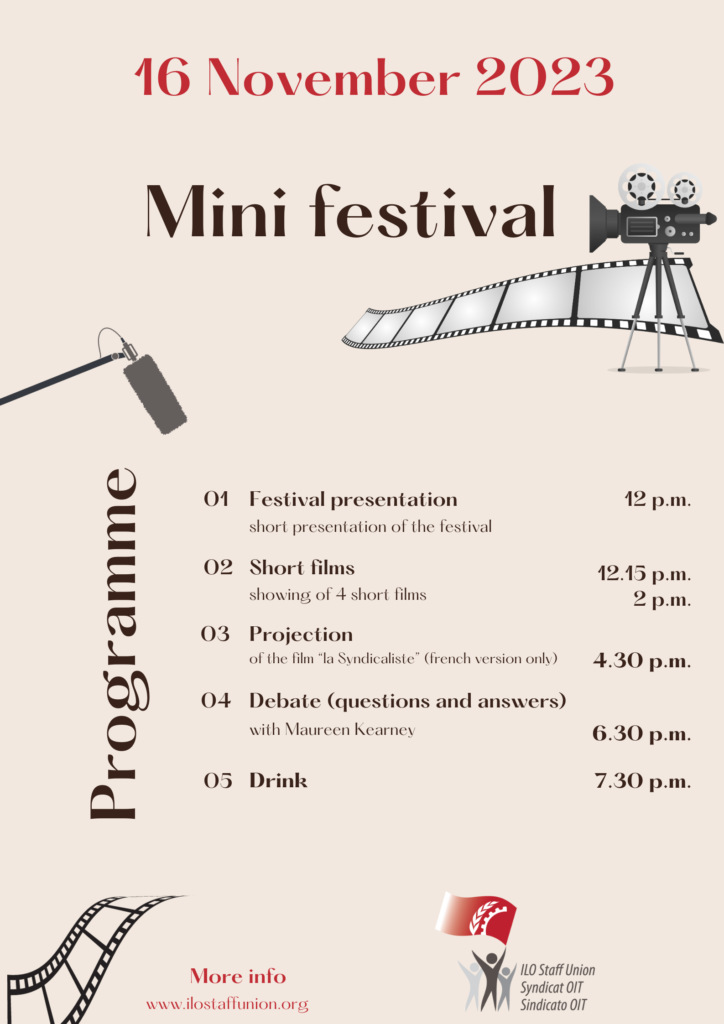The film: “La syndicaliste”
2012. For many years, Maureen Kearney, staff representative at Aveva, had been defending the interests of this flagship of the French nuclear industry, interacting with ministers and captains of industry. When she learned that Areva’s main competitor, EDF, was ready to sign a contract with the Chinese government that could lead to a transfer of technology, she took up the cause, alerting the authorities. On 17 December, she was found tied up and raped in her home. An investigation was launched by the police. Then everything changed…
Caroline Michel-Aguirre’s book was adapted into a film by Jean-Paul Salomé, with Isabelle Huppert in the lead role. Maureen Kearney has publicly approved the film, which illustrates how women’s voices are “delegitimized” in such struggles and how rape is “used as a political weapon to destroy its victims”.
Who is Maureen Kearney?
An Irish national, she grew up in a trade unionist family where it was said that everyone “has two hands, one to help themselves and the second to help others”. Her mother campaigned for the release of Nelson Mandela in 1990, and Maureen Kearney became a feminist at secondary school. In the mid-1980s, she settled in France with her husband Gilles in a house in the village of Auffargis (Yvelines).
After the birth of their daughter, in 1987 she was recruited by Société Générale pour les Techniques Nouvelles (SGN), a subsidiary of the Cogema group (later Areva), to teach English to technicians going to work abroad. Outraged at seeing young engineers made redundant without compensation, she joined the CFDT, becoming its “figurehead” at Areva. Her “very good contacts” and ability to “discuss with delegations from other nations” were praised. As a result, she was “commissioned by the CFDT,” with the union team “often receiving information internally” and cross-checking it to “find out about the strategic direction” of Areva.
Maureen Kearney is a trade unionist and whistleblower. A teacher of English for continuing education at a subsidiary of Areva, the world leader in the nuclear industry; she is a CFDT trade union official and was elected secretary of Areva’s European group works council in 2004. In the 2010s, she alerted the press and politicians to the existence of a secret contract involving technology transfers to China, threatening the company.
Why did you choose this film?
Doesn’t the title speak for itself? It was a godsend for the Staff Union just as the birth of this festival was beginning to take shape in the minds of Committee members….
Above all, this story paints the portrait of a person who is totally committed, focused on others and involved to the point of losing herself. It shows the limits and the depths of human nature when profit takes precedence over humanity.
Why a festival?
Just as Maureen is all about empathy, connecting with others and solidarity, the Staff Union wanted to bring staff together by sharing a different kind of event.
To recreate a bond, to get closer together, to reflect together and share the values that bind us all to the Organization: respect for others with all the humanity that implies.
In these difficult years, the bond is our most precious asset, as is the sharing of precious moments.

